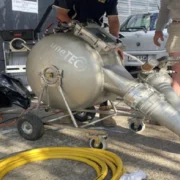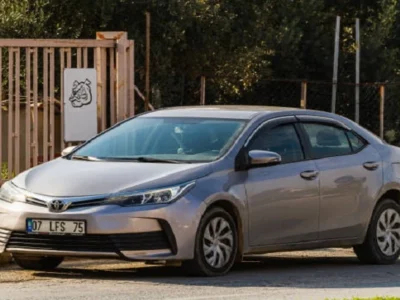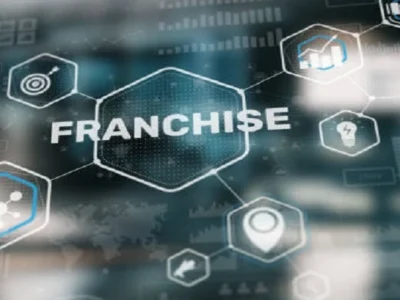It is important for companies that want to grow and expand to do cross-border mergers and acquisitions (M&A). These international agreements can help with handling people and finding your way around the complicated rules that apply to many countries, but they also provide access to new markets, new technologies, and higher levels of competition. It’s not easy to combine companies that are in different countries, as shown by the fact that 70% to 90% of cross-border mergers and acquisitions fail.
The role of an Employer of Record (EOR) has become vital in facilitating smooth transitions during cross-border M&A. EORs help businesses deal with problems related to employer compliance and make it easier to hire people around the world. Here’s how they help with the difficulties of foreign mergers and acquisitions, following rules, and boosting talent management plans.
Unlocking Growth with Cross-Border M&A
Growth through Expansion: Cross-border M&A provides fast market entry, access to new customers, and the chance to scale operations.
- Surging Popularity: The rise in cross-border M&A from 472 deals in 1985 to over 13,000 in 2019 shows its increasing importance, despite a temporary decline in 2020 due to the COVID-19 pandemic.
- Rebound and Future Growth: By the end of 2020, cross-border M&A deals reached $749 billion, and this upward trend is expected to continue, particularly with the rise of special purpose acquisition companies (SPACs).
Employer of Record: Bridging the Gap in Global M&A
An Employer of Record (EOR) is necessary to make sure that cross-border mergers and acquisitions (M&A) go smoothly. An EOR handles the complicated aspects of managing a foreign workforce. They do this by acting as a third-party organization with knowledge of employment laws. This service has gained significant importance, with the global EOR market anticipated to reach USD 6.60 billion by 2028.
- Regulatory Compliance: One big benefit of using an EOR is that it makes sure you follow the rules in your area. In places where misclassifying workers can have serious legal consequences, for example, the EOR makes sure that workers are correctly classified according to local employment rules and that employers make their required contributions. This lowers the chance of fines and lawsuits, which can stop the process of merging.
- Cost Reduction: It can cost more than $100,000 to set up a local business in a foreign country, and the filing and paperwork processes take a long time. Companies can avoid these up-front costs and administrative tasks by using an EOR. An EOR can also help businesses try out new markets without committing to full-scale operations. This lowers the risk and cost of failing.
- Talent Retention: 47% of key employees leave soon after a big transaction, which is a problem that often happens during M&A transitions. Even worse, if the merger isn’t managed well, turnover rates can reach 75% in just three years. It can be very bad for the success of an M&A to lose key employees. As an answer, EORs help companies keep their best employees while the integration process is going on.
- Cultural Integration: Companies that handle cultural differences well are 50% more likely to meet or beat their synergy goals in merger and acquisition deals. They’re also very important for cultural integration because they make sure that workers feel supported and involved, which makes them less likely to leave. Misaligned cultures are a big reason why mergers and acquisitions fail. A study from Deloitte says that 30% of failed mergers and acquisitions are because of cultural differences, such as language barriers, different work styles, and different time zones. Problems like these can make it hard for people to talk to each other and work together as a team. A “Employer of Record” can help by overseeing the process of culture integration and making sure that workers from both companies feel supported during the change.
- Talent Onboarding: EORs make it easier for newly hired workers to start working right away. They take care of all the paperwork that needs to be done, like setting up payroll and perks. In M&A deals, where getting new employees up to speed quickly is often a race against the clock, this efficiency is very important. During mergers and acquisitions, transitional service agreements (TSAs) are often used to handle HR and payroll jobs for a short time. But they can be expensive and not work well. An EOR can take over these duties instead of a TSA, making the transfer easier and letting the company that buys the EOR focus on its strategic goals.
Conclusion
Employer of Record (EOR) services play a big part in global business plans because they make cross-border mergers and acquisitions go more smoothly. When it comes to figuring out complicated foreign employment laws, making sure they are followed, and speeding up the processes for hiring people around the world and integrating companies that have been acquired, EORs are very helpful. Businesses that want to grow and reach new markets through international mergers and acquisitions need this help more than anything else.
In conclusion, the fact that EORs are becoming more important in cross-border M&A shows how global business processes are changing. As companies look for ways to grow outside of their home markets, the skills of EORs in handling human resources in multiple countries become more and more important. This trend shows that companies need to change their plans to include specialized services that can help them deal with the difficulties of going global and integrating with other countries.
Top 5 Reasons to Invest in Coyyn Today










Comments